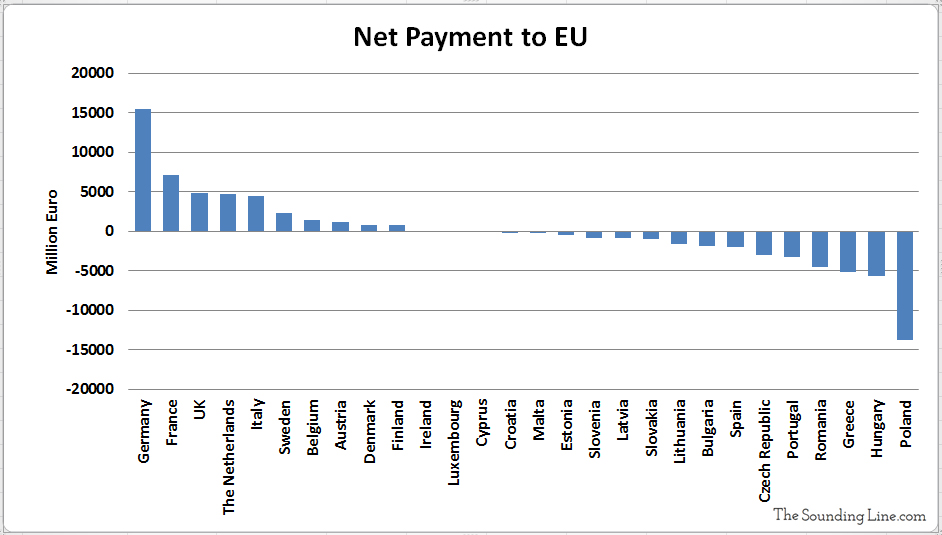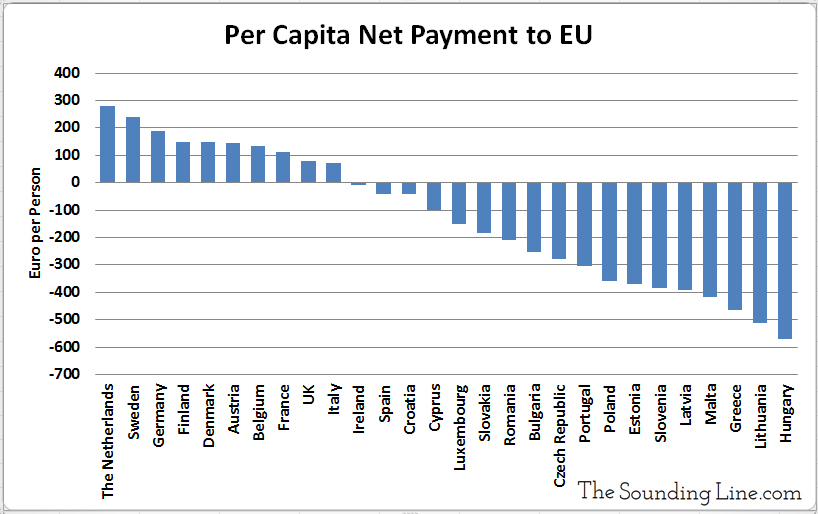Submitted by Taps Coogan on the 15th of March 2017 to The Sounding Line.
Enjoy The Sounding Line? Click here to subscribe for free.
Who is paying the most to be in the EU and how much does it cost per person?
The European Union collects revenue from its member countries through two mechanisms. The first is a percentage of value added taxes (VAT) levied by each member country and the second is a payment based on the Gross National Income (GNI) of each member. Combined, these two taxes represent over 80% of the EU budget with the rest coming mostly from customs and agricultural duties (here). In 2014, the most recent date for which detailed budgets are available, the EU collected 143 billion euro. That money was spent on projects and an alphabet soup of commissions throughout the EU with the largest chunk going to “smart and inclusive growth projects” (yes that’s the real name).
However, this money is not spent evenly across the EU nor based on the contribution each EU member country pays. As a result, some countries are net receivers from the EU (they receive more than they pay in) and others are net payers.
As the chart below shows, Germany is the largest net payer into the EU, followed by France, the UK, and the Netherlands. The biggest receivers are Poland, Hungary, Greece, Romania, and Portugal (positive values indicate a country is paying more than it receives)

However, if we account for differences in the populations of each country, the order changes. As the chart below shows, on a per capita basis, the Netherlands and Sweden are the largest net contributors to the EU, while Lithuania and Hungary are the largest receivers. Geographically, wealth is being transferred from northern Europe to just about everywhere else.

It costs the average resident of the Netherlands 280 euro a year to be a member of the EU, while the average Hungarian receives 571 euro per year in net EU spending.
As Greece can testify, being a net receiver of EU funds certainly doesn’t mean that EU membership is a net benefit, EU favorability in Greece is the lowest in all of Europe. One must wonder if northern Europe will be perpetually happy seeing their wealth redistributed into an increasing fractured and misaligned EU.
P.S. Join us on Twitter at The Sounding Line @TapsCoogan!
Would you like to be notified when we publish a new article on The Sounding Line? Click here to subscribe for free.

